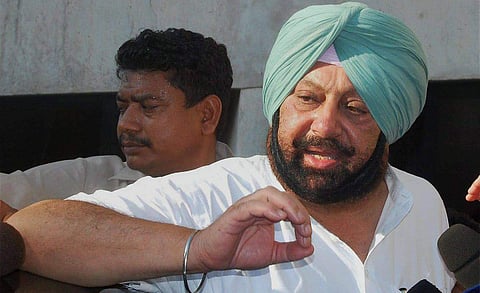

CHANDIGARH: The Congress benefited the most from the drop in the vote share of the Aam Aadmi Party (AAP) in Punjab from 24.5 per cent in the 2014 elections to just 7.36 per cent this time.
The ruling Congress got 40.1 per cent votes this time as compared to 33.2 per cent in the last Lok Sabha elections. The party won eight seats in 2019 as compared to three in the last elections.
The Shiromani Akali Dal (SAD) also gained from AAP’s loss of votes, with its vote share going up from 26.30 per cent in 2014 to 27.4 per cent this time.
But the party won only two of the ten seats it contested. Its alliance partner BJP got 9.3 per cent votes, up from 8.70 per cent in 2014, to win two of the three seats it contested.
The BSP also gained from AAP’s loss of votes, as its vote share rose to 3.49 per cent from 1.9 per cent in 2014. It lost on all the three seats it contested. In 2014, it had contested all the 13 seats and lost all.
The AAP had won four Lok Sabha seats in the 2014 elections and 20 seats in the 2017 Assembly polls to become the main opposition party in the state.
This time, only it’s state unit president Bhagwant Mann could win a seat, all the other candidates finishing third or fourth in their constituencies.
The other worrying fact for the party is that it managed to lead in only seven of the 117 Assembly segments in the state: Sunam, Dirba, Barnala, Sangrur, Dhuri, Bhadaur and Mehal Kalan, which are part of Sangrur Lok Sabha seat, which Mann won.
In the 20 Assembly segments from where the party’s legislators won the last time, they trailed badly and were pushed to the third or fourth places. One of the reasons being given for this is infighting in the party and the party being virtually divided, with five of its MLAs having left.